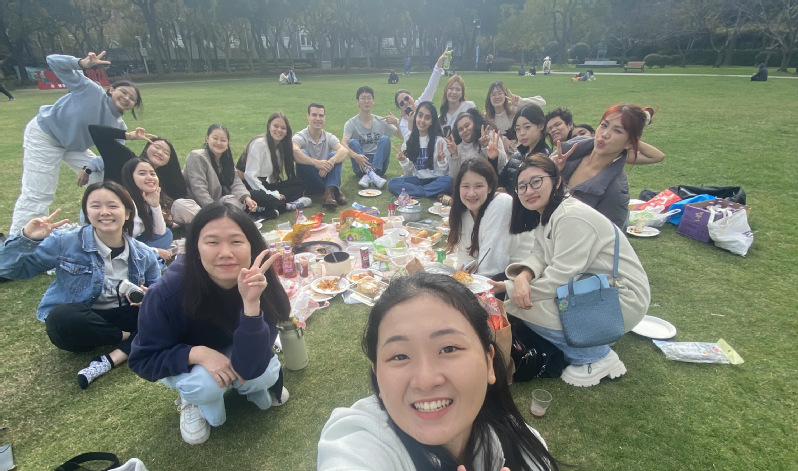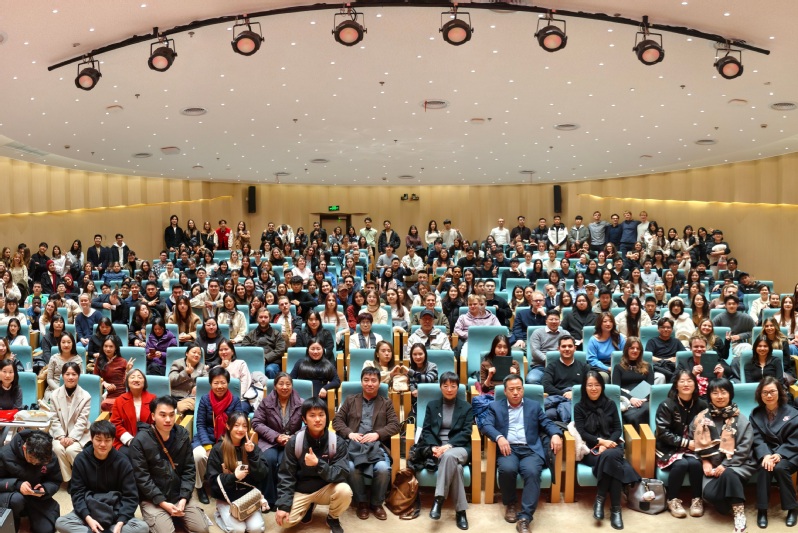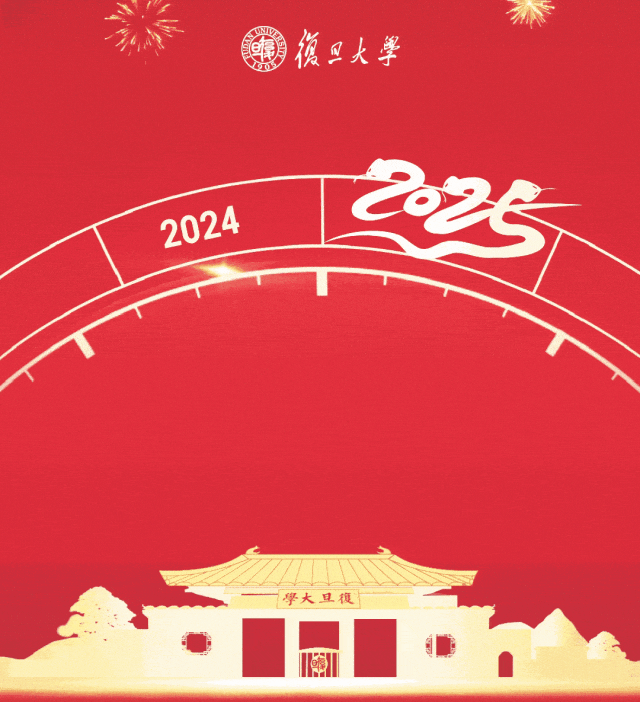
Hi, my name is Alyssa Hackett. I'm from the U.S. and I study at Boston University. My major is international relations with a concentration on Asia regional and international systems and law.
How did you learn about the YICGG and why did you decide to participate?
I learned about YICGG from Matt, a classmate of mine in Professor SHEN Ke's Population Development course. He approached me after I had just given a presentation and said he thought my public speaking skills and overall knowledge were something he was looking for in a partner for an AI project competition, which I later came to realize was YICGG.
I was originally a bit uncertain about participating in a field as new to me as AI, but it's always great to expand my opportunities and just try new things. Moreover, I was excited about the chance to meet and work with some other awesome Fudan students and learn more about AI. I really think it's important to always learn and keep expanding, and I thought I'd give it a shot!
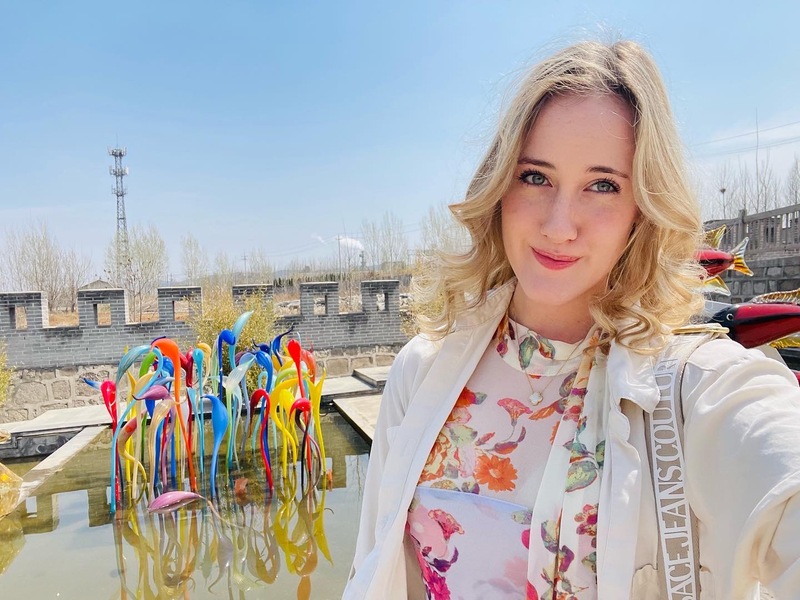
The theme of YICGG 2024 is Global AI Governance: A New Era of Responsibility, Challenges, and Cooperation. Could you briefly exaplain your project proposal?
Matt and I decided to focus on environmental protection, believing it offers potential for global cooperation facilitated by AI. Despite general consensus on the need for environmental action, disputes persist regarding responsibilities between developed and developing nations. We observed that existing AI applications in climate change mitigation lack large-scale implementation.
We looked at UN climate change statistics, which track countries' environmental impacts, and considered how AI could enhance cooperation and accountability. Our solution involves developing an AI tool for continuous, real-time assessments of environmental impacts in key checkpoint cities worldwide. This tool would monitor factors like pollution, coal usage, and waste management, and use AI to analyze weather patterns and city statistics to suggest feasible policies.
To improve accountability, the AI tool would include cost predictions for implementing these policies. Publishing these estimates could pressure governments to act and clarify whether inaction is due to financial constraints or resource misallocation. This transparency aims to identify where international assistance is needed most, ensuring effective fund allocation.
Our next steps involve refining accountability mechanisms and validating the practicality of AI predictions. This includes identifying AI technologies for accurate environmental forecasting and optimizing efficiency through further research. Ultimately, we aim to propose a comprehensive solution that addresses governance gaps and fosters global cooperation in combating climate change.
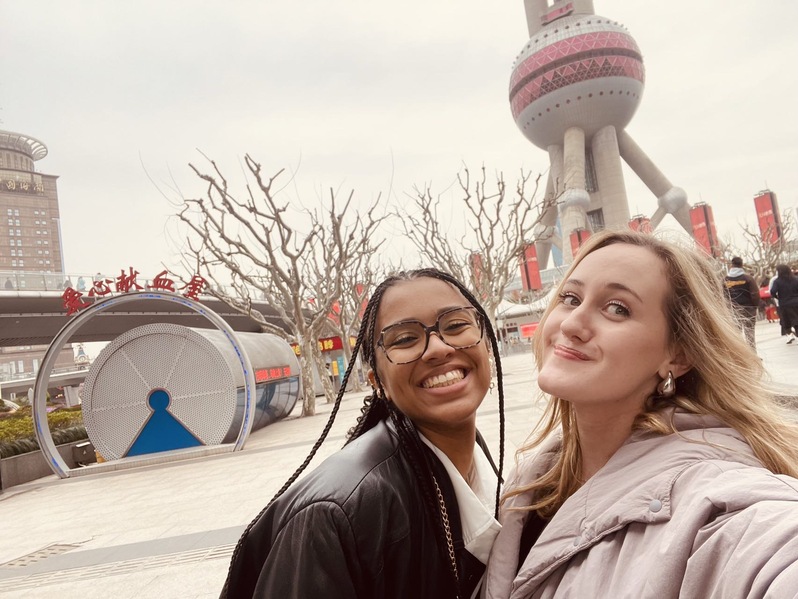
Has your study experience in China given you any new insights and perspectives on global governance?
I feel like my study abroad experience in China has given me valuable insights into how I can make changes on a micro level to assist with global development and peace. Travelling to another country and learning about China's policies, history, everyday life, and culture has significantly broadened my understanding. Even though my stay was relatively short, I developed a deeper appreciation for how China functions as a whole. This experience has helped me discard some preconceived notions and better understand the country.
Moving forward, be it in my forthcoming academic endeavors in the United States or through my subsequent journeys abroad, I am resolved to persist in this methodical approach—absorbing every morsel of knowledge about each nation I encounter. This foundational understanding is paramount for truly grasping the essence of a country's populace. Making an effort to learn the language, try the foods, and immerse in the culture fosters genuine connections and opens up conversations that can lead to real change in day-to-day life.
Additionally, I was fortunate to take courses such as Population and Development and Urbanization in China. These courses allowed me to observe firsthand how Chinese governance differs from Western governance, particularly in terms of quicker policy implementation and the use of experimental economic zones—practices I hadn't seen in my own country. This was incredibly interesting and is something everyone should explore when studying abroad. By comparing the structural differences, strengths, and weaknesses of various countries, we can better understand what works globally in terms of effective policy implementation.
In my classes, we did comparative studies of the US, Europe, China, and Africa to see what has historically worked for urbanization projects, population development policies, and programs. This kind of analysis is crucial for future global governance studies and is something students should focus on to help develop more effective policies worldwide.
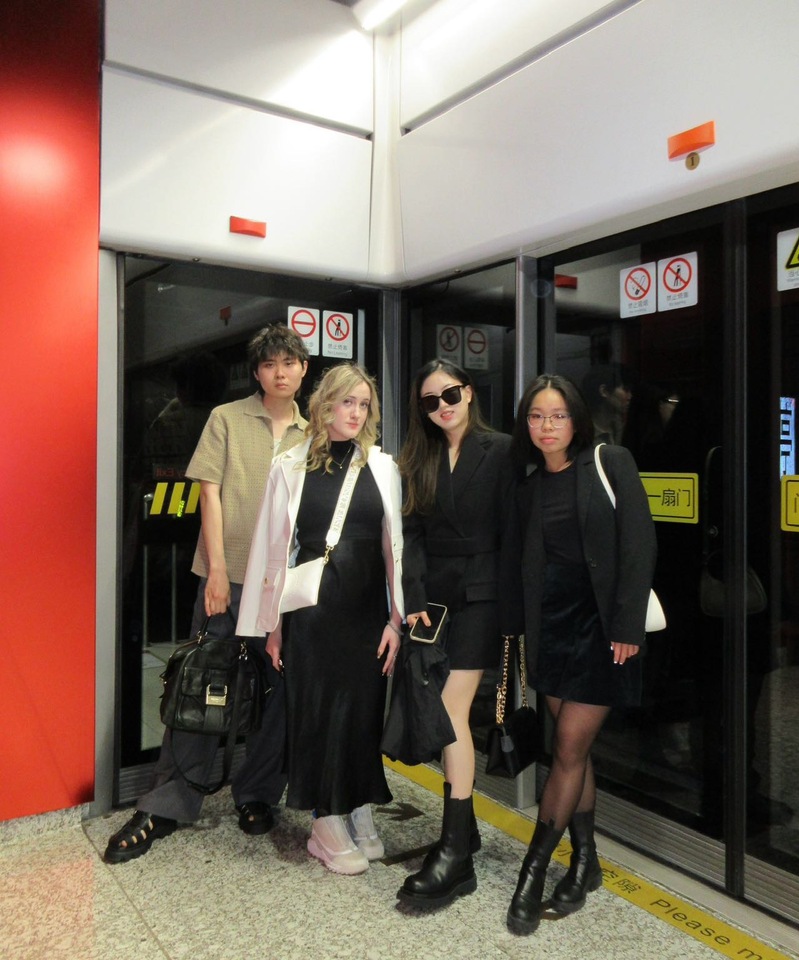
What advice would you give to other students interested in participating in global governance?
Firstly, it's natural to feel nervous about tackling global issues, but remember that small, everyday interactions can lead to meaningful changes. Conversations and personal connections can bridge gaps and open up dialogues that larger-scale initiatives might miss.
Secondly, don't hesitate to take courses outside your primary field of study. Subjects like statistics, demographics, history, and policy studies can provide a broader understanding of global governance. For example, taking a course in urbanization helped me understand policies like China's Hukou system, which in turn enriched my perspective on global housing systems.
Lastly, focus on the practical application of what you learn. Whether through internships, projects, or simply engaging with different cultures, real-world experiences are crucial. They not only enhance your knowledge but also build confidence in your ability to contribute to global governance.
(END)
Our heartfelt appreciation goes to Alyssa for generously imparting her valuable insights.
Reported by HONG Jiayi
Source: School of Social Development and Public Policy, Fudan University

